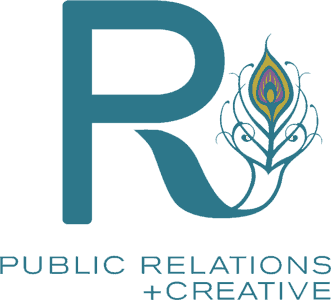With so many opportunities for today’s businesses to share their story, figuring out which tools and strategies will serve your brand best can be challenging. Public relations (PR) and content marketing play different roles in building brand awareness and audience engagement. Is one better than the other? Here’s what you need to know about public relations and content marketing and how they work together.
Content marketing focuses on creating and distributing content to attract and engage a target audience. While it can contribute to a positive brand image, its main goal is educating, informing, and entertaining the target audience. Content marketing is often used to support broader marketing and business objectives, like driving profitable customer action, generating leads, raising brand awareness, and keeping customers.
Public relations is a strategic communication discipline focused on managing and maintaining a positive reputation for a brand, organization, or individual. PR professionals work to build and nurture relationships with various stakeholders, including the media, customers, investors, government entities, and the public. The goal of PR is to shape public perception, influence opinions, and handle crisis situations effectively.
The Changing Landscape of Brand Awareness

In the past, public relations relied heavily on newspapers, magazines, and other news outlets like television and radio to build brand presence. Today, public relations also uses new tools to develop and maintain positive brand awareness using websites, online news sources, and blogs.
Like public relations, content marketing focuses on improving business brand awareness, but content marketing uses different tactics. In today’s digital world, the lines between content marketing and PR are less defined. Both are important parts of a company’s overall marketing and communication strategy. Public relations (PR) and content marketing work together to tell a company’s story.
Public Relations Versus Content Marketing—How They Stack Up

When it comes to content marketing and public relations, it’s not a question of choosing one over the other. Your specific goals, target audience, and the nature of your business determine which tools and tactics you should use. Both public relations and content marketing have distinct advantages, and the ideal approach often involves integrating both into your overall brand strategy. Here’s a breakdown of their respective strengths:
-
Public Relations
-
-
- Reputation Management: Public relations manages and enhances a brand’s reputation. It can help build trust, credibility, and a positive image among stakeholders.
- Media Coverage: PR professionals have expertise in securing media coverage, which can provide third-party validation and exposure for your brand.
- Crisis Management: Public relations is essential for effectively handling and mitigating crisis situations, helping protect your brand during challenging times.
- Relationship Building: PR fosters relationships with key stakeholders, including the media, customers, investors, and government entities.
-
-
Content Marketing
-
- Targeted Audience Engagement: Content marketing is highly effective at reaching and engaging a specific target audience with tailored content that addresses their needs and interests.
- Educating and Informing: Content marketing focuses on providing valuable information and resources to your audience, positioning your brand as an authority in your industry.
- Lead Generation: It can be a potent tool for generating leads, nurturing prospects, and converting them into customers through content-driven strategies.
- Consistency and Long-Term Strategy: Content marketing is often part of a long-term strategy, focusing on consistency and creating evergreen content that retains value over time.
Content marketing is all about getting people interested in the stories a brand wants to share. Whether it’s through blog posts or social media updates, it’s about telling a compelling tale. On the other side, public relations is all about building relationships with writers and journalists who spread the word about the brand. PR helps you build your brand’s reputation.
They meet in the middle with storytelling. Both traditional and digital PR can support content marketing by getting a brand’s stories and content into the hands of influential writers and journalists. When that happens, it’s like giving your content a boost, and it’s more likely to grab attention, go viral, make more people aware of the brand, and drive audience engagement.
Integration Is Key

While public relations and content marketing have distinct advantages, they are not mutually exclusive. They often work best when they are integrated into one comprehensive strategy. Here’s why:
- Enhanced Credibility: Combining PR’s media coverage with content marketing’s educational content can establish your brand as credible and authoritative.
- Content Amplification: PR can help amplify your content by securing media placements for your articles, blog posts, or videos, expanding your reach.
- Storytelling Synergy: Both PR and content marketing rely on storytelling. When integrated, they can create a consistent narrative that resonates with your audience.
- Crisis Communication: During a crisis, a well-planned content strategy can support PR efforts by providing precise and accurate information to the public.
The bottom line is you need both. Ultimately, the choice between public relations and content marketing depends on your specific goals and the stage of your business. In many cases, a balanced approach that leverages the strengths of both disciplines is the most effective strategy. Remember that the key is not which one comes out on top but how they can complement each other to achieve your overall marketing and communication objectives.
Are you seeking strategies to increase brand awareness using public relations and content marketing? Then schedule a consultation with us today and let our experts at RPR show you how to get the most out of a well-integrated campaign that includes both PR and content marketing.
